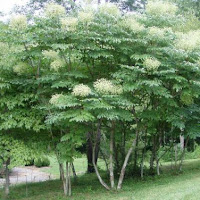HERBAL TIPS
 |
List of Herbal & Description
|
|
|
|
|
|
|
|
|
|
|
|
|
|
|
|
|
|
|
|
|
|
|
|
|
|
|
|
|
|
|
|
|
|
|
|
|
|
|
|
|
|
|
|
|
|
|
|
|
|
|
|
|
|
|
|
|
|
|
|
|
|
|
|
|
|
|
|
|
|
| |
|
|
| |
|
|
| |
|
|
| |
|
|
| |
|
|
| |
|
|
| |
|
|
| |
|
|
| |
|
|
| |
|
|
| |
|
|
| |
|
|
|
Latin: Malpighia punicifolia
Use: Fruit
 |
| Acerol |
Indications:
Antioxidant, Immune Defense Stimulant, instant Tonic
Description:
Acerola is the fruit of a small shrub of the same name which grows wild in the dry forests fo South America, Central America, and Jamica. This small, brick red fruit that closely resembles a cherry is also known by the name barbadow cherry.
Attical
Natural vitamin C
Acerola contains trace elements of calcium, iron, magnesium, phosphorus, vitamins A, B6, and most importantly, Vitamin C. Acerola even has 100 times more vitamin C than an orange compared with industrially produced crystalline ascorbic acid , the vitamin C in Acerola is always associated with other co-factors, namely bioflavonoids or vitamin p, which have similar properties adjuvant to those of vitamin C and which potentiate the vitamin effect. The qualities of Acerola are the same as those of vitamin C, making Acerola an excellent tonic. It stimulates immune functions and the body's defences. It is perfectly suited to handle a transient or persistent fatigue and to prevent winter infections such as influenza or ear, nose , and throat infections( rhinitis, othitis,pharyngitis, laryngitis, tracheiteis , bronchitis, etc). Vitamin C also eases the intestinal absorption of iron and thus, has an anti-anemic effect. When vitamin C is combined with Spirulina, which contains high amounts of Iron, it can better absorb the iron found in seaweed. finally, it represents an excellent complement to diets low in fruits and vegetables, and it is also recommended for smokers, who have an increased need of vitamin C.
Alexandrian Senna
Latin: Cassia angustifolia
Use: Leaflet
 |
| Alexandrian Senna |
Indication:
Treatment for occasional constipation in adults.
Description:
Alexandrian Senna, or Tinnevelly Senna, is cultivated in India forits lanceolate leaflets rich in senna glycosides.
Aritcal:
A stimulating laxative
Senna leaflet have laxative properties, and can even have purgative properties, depending on the quantity used. In form of total powder capsules taken orally, the plant's leaflets produce their effect within approximately 10 hours: colonic activity is accelerated, the volume of stools increases due to a prtial inhibition or water absorption in the color, thus providing better hydration of the stools. Like Burdock, Alexandrian Senna is a response treatment effective only for occasional constipation. It is not children, or use it for more than 10 days with adults.
Alfalfa
Latin: Medicago sativa
Use:Juice of leaves
 |
| Alfalfa |
Indication:
Fragile nails and brittle hair, asthenia, anemia, osteoporosis.
Artical:
Essential mineralization
Traditionally, the juice of its leaves is used, as it is rich in proteins (40-50%), amino acids minerals such as calcium and trace elements ( silicon, iron, phosphorus, copper, zinc, selenium). Alfalfa is an excellent general stimulant, particularly with its beneficial remineralizing effects, helping to improve the problems of fragile nails, dull, brittle hair and splits ends and more generally , fatigue problems.
Angelica
Latin: Angelica archangelica
Use: Root
 |
| Angelica |
Indications:
Flatulence, Colitis, bloating, Abdominal pain and Spasms.
Description:
Angelica is essential a crop plant, but grows in the wild in the Alps and the Pyrenees. It has a large root that contains an essential oil which offers benefits for the entire digestive system.
Article:
Intestinal comport
Endowed with excellent antispasmodic properties, it targets colitis by effectively calming intestinal spasms and pain. Angelica ia a cholagogue, which means that it eases the discharge ofbile and facilitates digestion. It prevents the formation of intestinal gas and treats flatulence and bloating.
Artichoke
Latin: Cynara scolymus
Use: leaves
 |
| Artichoke |
Indications:
Hepatobiliary Disorders, Constipation, Bad Digestion
Description:
This plant, which now occupies a prominent place in both the culinary and therapeutic worlds, is actually a non-throny variety of the wild cardoon found in Mediterranean regions. Appreciated by consumers for its fleshy body, it owes its therapeutic fame to the digestive properties of the side, deeply lobed leaves attached to its stem.
Article:
The plant protector of the liver
Several French doctors during the first half of the twentieth century demonstrated interest in using Artichoke leaves to treat.
Hepatobiliary diseases in their work. The Artichoke choleretic action is attributed to a bitter, aromatic substance called cynarin. It is particularly useful for congestion or hepatic insufficiency , jaundice, and poor fat digestion. by stimulating bile secretion, Artichoke also targets constipation. Bile stimulates bowel movements, helping ease the discharge of fecal matter. Artichoke leaves contain. To benefit fully from the plant,s effects, the use of total plant powder is recommended. Artichoke appears to stimulate the regeneration of liver cells when they are exposed to various toxins. If this is confirmed through controlled clinical trials, the plant could be used as a hepatoprotective in patients with cirrhosis. It has also been demonstrated that Artichoke leaf possesses hypolipidemic and hypocholes - terolemic properties.

No comments:
Post a Comment
Many Many Thanks for Your Excellent Comments .